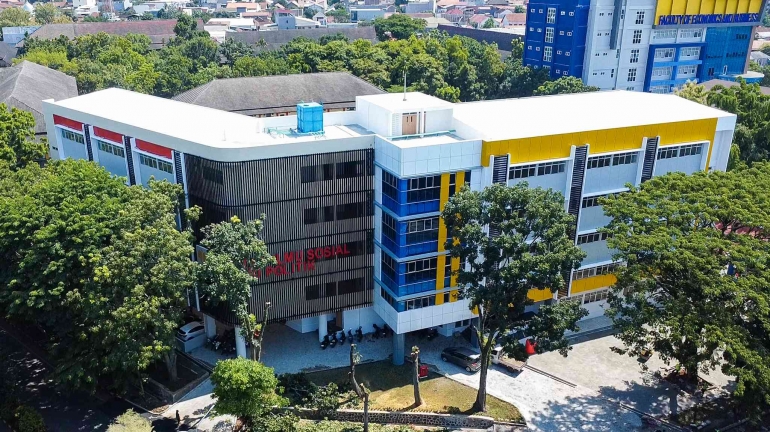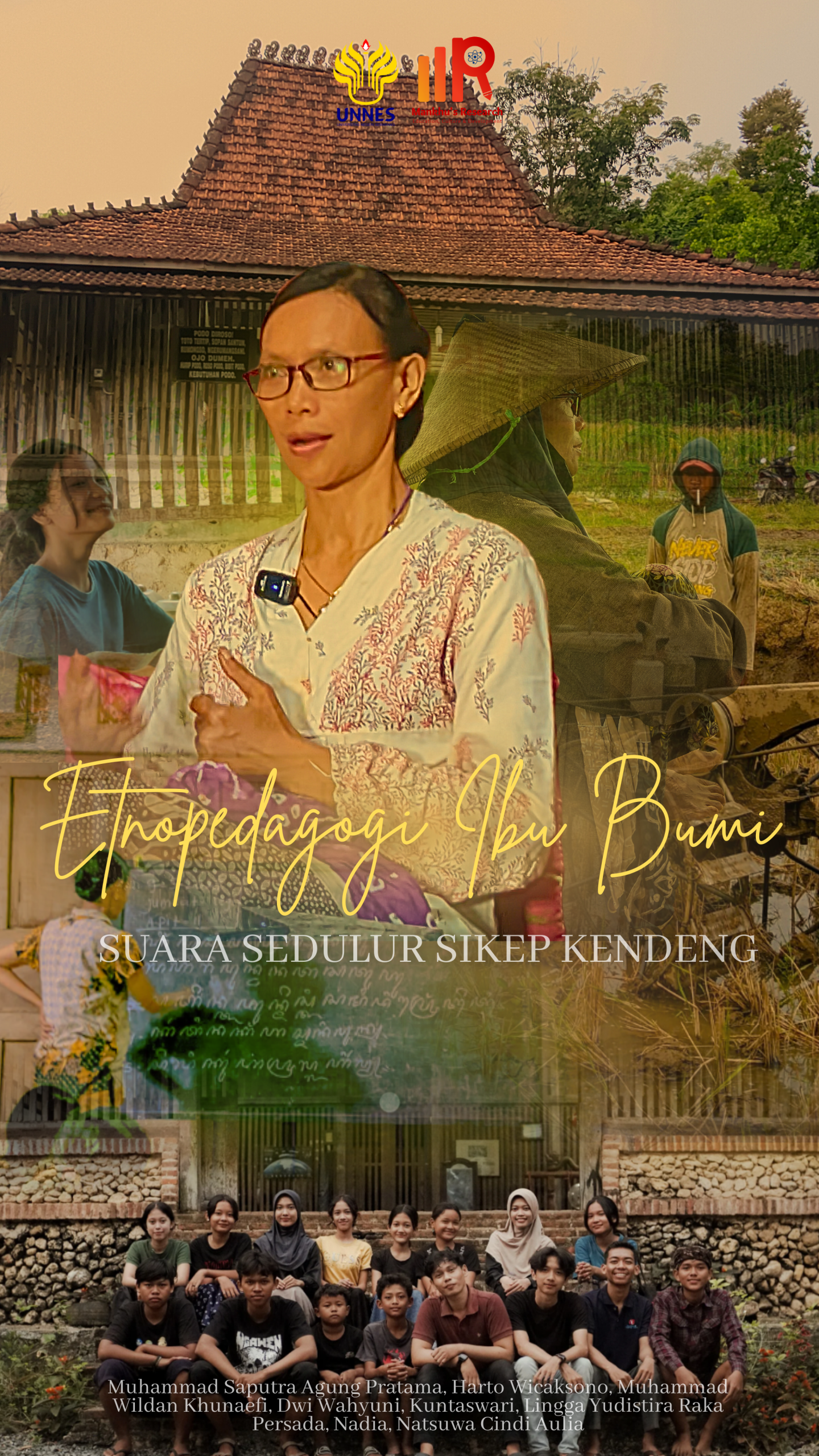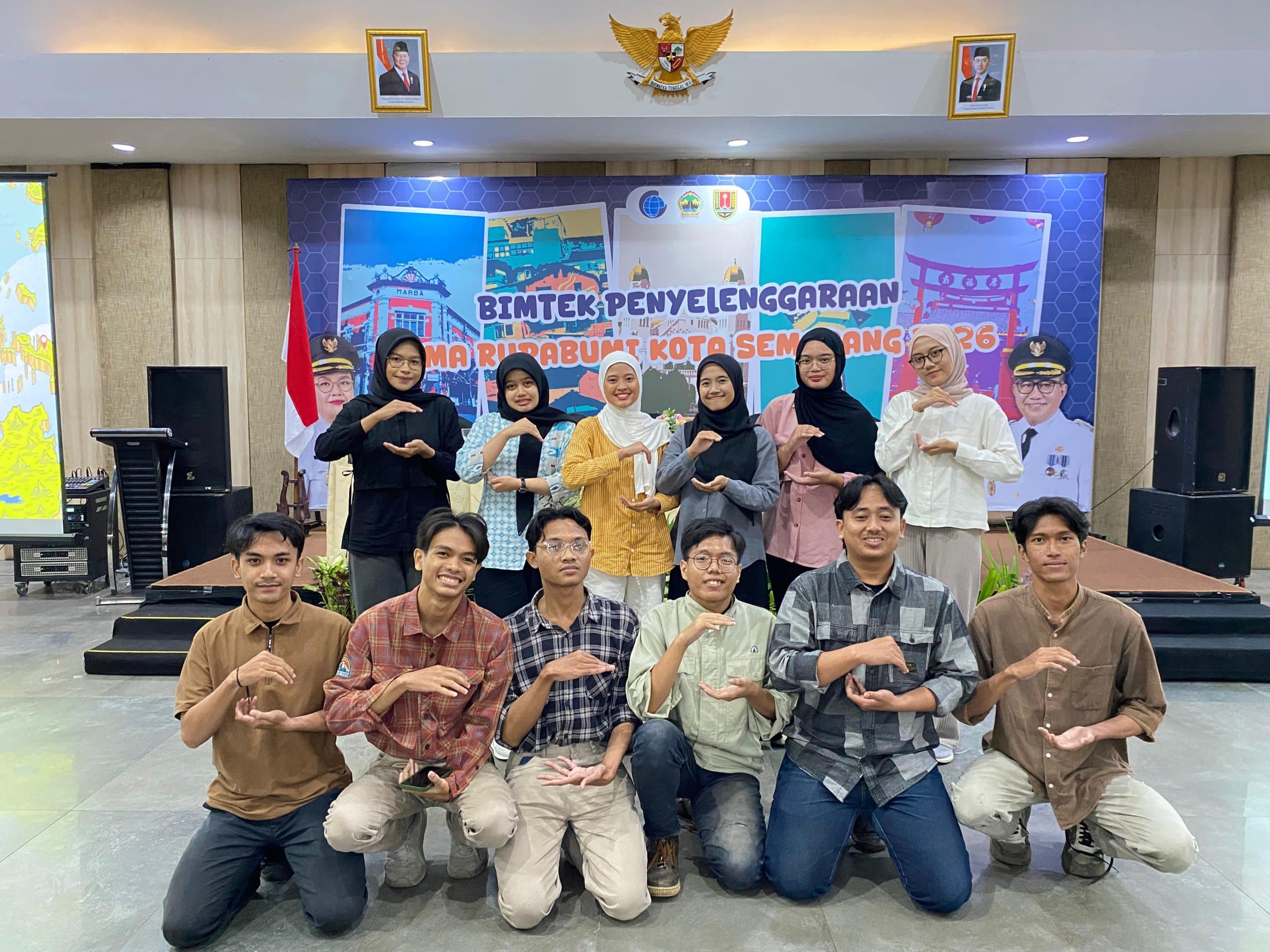The Mandala Bhakti Perjuangan Museum is one of the museums in Semarang and is a place to remember and store historical evidence of the struggle of the nation’s sons and daughters against the invaders. The museum, which was inaugurated on March 1, 1985, by Major General Soegiarto, presents various weapons used by heroes when facing war, such as daggers, spears, bamboo spears, and bows, as well as the latest weapons such as pistols, throwing weapons, grenades, heavy machine guns, ammunition, and so on, which are displayed neatly in the window.

The visit to the Perjuangan Mandala Bhakti Museum was carried out by five group members from the Social Conservation course, namely Muhammad Naufal, Agustin Hidayah, Sufi Amalia, Lulu ‘Ul Fitriani, and Luthfia Wahyu Hapsari. Observation begins in the lobby, where the place is used to register visitors and pay an entrance ticket of IDR 5,000 per person. After registering, visitors are directed up the stairs to the second floor, where various historical items and paintings are displayed. The photo studio in the museum, which is located on the second floor, has a function as a place to take pictures of visitors, along with costume rental. This room has a different interior from other rooms in the museum because it is made like a cinema. There is a room containing several weapons on display, including firearms (pistols), ammunition, and heavy weapons such as cannons.
When making observations at the Perjuangan Mandala Bhakti Museum, visitors are shown the walls of the museum, which depict the story of Prince Diponegoro in a coherent manner from infancy to adulthood, and explanations of historical stories are also provided on the sides of the painted walls. Visitors are then directed to the next room. Between one room and the next, there are passages that also depict historical stories on the walls of the museum, one of which is a replica of a cave where Prince Diponegoro and Paku Buwono VI were hiding during the war against the Dutch. Not only presents the history of Prince Diponegoro, but there are several dioramas, paintings, and items related to the rebellion that occurred in Indonesia. Each museum room has an explanation of the objects displayed.
There is also Diponegoro Tripe, which uses Arabic, Keris, and relics of Prince Diponegoro. Babad Diponegoro is a biography written by Prince Diponegoro himself. This chronicle was written when Prince Diponegoro was in exile in North Sulawesi. In this text, Prince Diponegoro shows a deep sensitivity to the local conditions of the community, which were very apprehensive at the time. Prince Diponegoro’s resistance against Dutch colonialism ended with Hendrik Markus de Kock’s deception. At that meeting, Prince Diponegoro was arrested and exiled. This chronicle text was designated by UNESCO as a world documentary heritage in 2013.
There is a room that displays strategic maps for the placement of various rebellions, as well as stories and documentation on these operations. The value that can be taken from Prince Diponegoro is that whatever the conditions and whatever the obstacles, he still maintains his fighting spirit to defend the Unitary State of the Republic of Indonesia. The spirit of nationalism and patriotism should and must be emulated for future generations, or the next generation of the nation. Even though he had experienced exile, he still put the interests of the people first and created works to voice the apprehensive condition of the people.
Written by: Agustin Hidayah, Luthfia Wahyu Hapsari, Sufi Amalia, Lulu Ul Fitriani, Muhammad Naufal Azaria.



